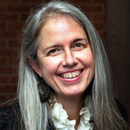God’s supreme commands: Love God and Neighbor

Daily Scripture
Matthew 22:35-40
35 One of them, a legal expert, tested him. 36 “Teacher, what is the greatest commandment in the Law?”
37 He replied, “You must love the Lord your God with all your heart, with all your being [Deuteronomy 6:5], and with all your mind. 38 This is the first and greatest commandment. 39 And the second is like it: You must love your neighbor as you love yourself [Leviticus 19:18]. 40 All the Law and the Prophets depend on these two commands.”
Daily Reflection & Prayer
Jewish rabbis debated: were all commandments equal, or were some greater? Asked if there’s a greatest commandment, Jesus chose not one but two. The first was Deuteronomy 6:4: “You must love the Lord your God with all your heart, with all your being, and with all your mind.” But he added Leviticus 19:18: “You must love your neighbor as you love yourself.” Jesus’ teaching that all other truths are meant to lead us to love God and neighbor more fully shaped John Wesley’s approach to ministry.
- Jesus said every key Bible principle, all the truths we know about what God wants, “depend” on the two commands he quoted. What do you believe made these two commands so foundational in Jesus’ thinking, teaching and living? Can you recall any time when some belief you held led you to love God or some of your neighbors less, maybe even without realizing it?
- That second command can be challenging. Loving others the way we love ourselves is based on how God loves us—never giving up, no matter what. Our humanity makes it hard for us to love ourselves or others with God’s unwarranted love with no hesitation. But God calls us to move toward that, for our own sake and the sake of others. * What has stopped you or made it hard for you to love yourself or someone else persistently? How might you love more fully?
Prayer
Gracious God, thank you for loving me unconditionally. Help me to recognize the moments in my life when I can relentlessly love those around me. Amen.
GPS Insights

Amy Oden
Dr. Amy Oden, who serves as Adjunct Professor of Early Church History and Spirituality at the Oklahoma campus of Saint Paul School of Theology, wrote today's Insights. Teaching is her calling, and she looks forward to every day with students. Her book (Right Here, Right Now: The Practice of Christian Mindfulness, Abingdon Press, 2017) traces ancient mindfulness practice for Christians today.
The GPS today invites us to consider self-love, to take self-love seriously as part of Jesus’ foundational teaching: “You must love the Lord your God with all your heart, with all your being and with all your mind. This is the first and greatest commandment. And the second is like it: You must love your neighbor as you love yourself” (Matthew 22:37-39).
For many of us, loving our neighbor comes more easily than loving ourselves. Self-love can sound a bit arrogant or self-centered or narcissistic. We haven’t had many healthy models for self-love.
For me, a starting place for self-love is learning to be gentle with myself. When I catch my inner critic scolding, shaming or condemning something I’ve said or done, I’m learning to pause and be gentle with myself instead.
This is what it looks like: I pause, take a deep breath and exhale, releasing that voice of self-judgment. Then I get curious: Jesus, what are you showing me? Perhaps my words or behavior tell me something about myself right now: a need for rest that has gone unmet; or a desire to be helpful that morphs into controlling; or anxiety about the future that shows up as compulsive online scrolling. Whatever it is, I ask God to show me what’s really going on, to see myself through God’s eyes.
That’s when grace inevitably pours over me, over my words or behavior. I feel the weight of failure dropping away. I become lighter as gentle possibility offers space to try again, an invitation into the rest I need, or to carry my desire to be helpful more lightly or to shift my gaze from anxiety about the future to gratitude for the present.
I’m still learning. Sometimes it takes days before I realize that self-condemnation has taken hold. It takes practice, a spiritual muscle strengthening over time. I’m convinced that self-scolding will never make me more loving to others. Instead, I want to let Jesus shape love in me, for myself, for others and for God.
© 2025 Resurrection: A United Methodist Church. All Rights Reserved.
Scripture quotations are taken from The Common English Bible ©2011. Used by permission. All rights reserved.
References
* For practical steps toward loving well, see Mindy Caliguire, Discovering Soul Care. Downers Grove, IL: InterVarsity Press, 2007.
